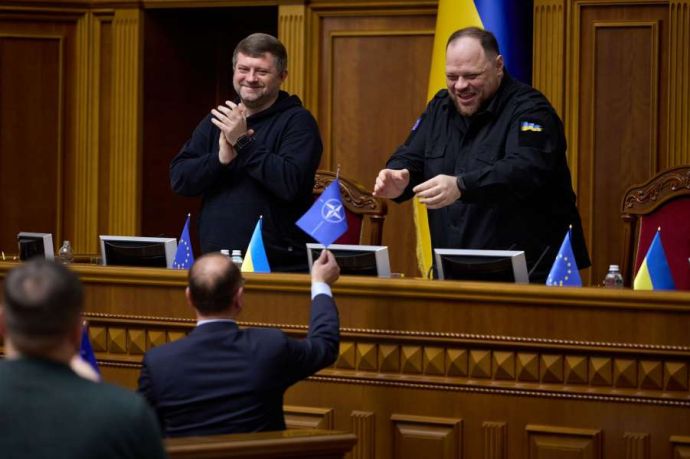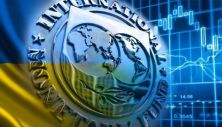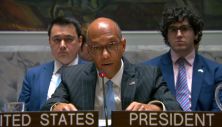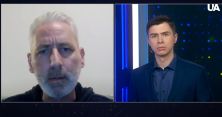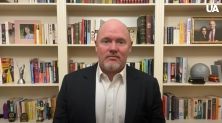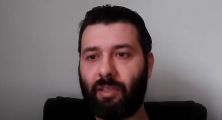By Anna Levchenko
It seems that the focal point of aid to Ukraine is gradually shifting back to where it truly belongs – Europe. While the role of the United States in supporting Ukraine remains unquestionably prominent, Western Europe, particularly the EU, is also striving to strengthen its leadership. This is partly because Russia’s invasion of Ukraine occurred just hundreds of kilometers away from the borders of the European Union. Recent incidents of resurgence far-right, eurosceptic, and Putin sympathizers are causing genuine concern among Europeans. This is primarily because such resurgences fracture the unity of Euro-Atlantic structures and weaken Europe’s immunity against hybrid attacks from authoritarian regimes.
The European Union faces three major challenges regarding Russia’s invasion of Ukraine, all of which are exceedingly serious. Firstly, there’s the issue of funding. While the EU budget has the necessary funds, the obstructive role of Budapest hampers the allocation of genuinely powerful resources. It appears that this will lead to a revision of voting mechanisms on crucial and urgent matters.
Secondly, there’s a problem of insufficient active supply of weapons from the arsenals of European countries. Talks are already underway about depleting the arsenals of certain countries, although the actual supply of mass categories of weapons requires transferring a negligible percentage of these reserves.
Thirdly, there’s the issue of ramping up the production of weapons instead of those supplied to Ukraine, as well as ammunition, which the war in Ukraine demands in colossal quantities. An important and vivid case is the delivery of one million large-caliber artillery shells from EU countries to Ukraine. The goal to deliver precisely one million shells within the next 12 months was adopted by EU leaders in March 2023 to support Kyiv in its fight against Russian forces.
However, in November, the Chief Executive of the European Defence Agency, Jiri Sedivy, informed “Politico” that the EU would supply one million artillery shells to Ukraine – but not by the March deadline.
In essence, the European ship of defence efforts is unfolding to set its course but is doing so too cautiously. The danger looms specifically over the EU, as Poland, Lithuania, Estonia, Latvia, Romania, Slovakia, or Finland could become the next targets of the Kremlin.
 PHOTO: Prime Minister of Spain Pedro Sanchez on the first day of his country’s presidency in the EU Council arrived in Kyiv to demonstrate support for Ukraine in its fight against Russia’s invasion. Spain supports strengthening Ukraine’s political participation in the North Atlantic Alliance through the creation of the Ukraine-NATO Council and practical cooperation in the defense sector. Source: Getty Images.
PHOTO: Prime Minister of Spain Pedro Sanchez on the first day of his country’s presidency in the EU Council arrived in Kyiv to demonstrate support for Ukraine in its fight against Russia’s invasion. Spain supports strengthening Ukraine’s political participation in the North Atlantic Alliance through the creation of the Ukraine-NATO Council and practical cooperation in the defense sector. Source: Getty Images.
Spanish Presidency
On December 20, Spanish Prime Minister Pedro Sanchez, who was elected to this post just two weeks ago, is set to report to the lower house (El Congreso) of the Spanish Parliament. Notably, this is his third term in this position.
However, he will have to answer, above all, questions about the work of the European Council, where Spain (and thus Sanchez) presides from July 1 to December 31, 2023. Additionally, Sanchez must address questions about his recent visit to Kyiv, specifically regarding Madrid’s policy of supporting Ukraine.
During his visit to Kyiv on July 1, Pedro Sanchez demonstratively emphasized his status: “Speaking about the perspective of the European Union regarding Ukraine’s accession to the EU, my presence here on the first day of the six-month presidency [of Spain]… demonstrates a clear and unequivocal political commitment from the community’s institutions in this regard.”
“We will support the Ukrainian people until peace returns to Europe,” he stated during a joint press conference with Ukrainian President Volodymyr Zelensky.
Well, Madrid is trying to substantiate intentions with real content. And in this, it looks quite convincing. But what about the neighbors?
 PHOTO: Prime Minister of Italy Giorgia Meloni during questions in the Senate, the upper house of parliament, in Rome on November 23, 2023: “By helping and supporting the fighting Ukrainians, we defend our national interests.” Source: Getty Images.
PHOTO: Prime Minister of Italy Giorgia Meloni during questions in the Senate, the upper house of parliament, in Rome on November 23, 2023: “By helping and supporting the fighting Ukrainians, we defend our national interests.” Source: Getty Images.
Meloni’s Response
On November 23, Italian deputies once again posed challenging questions to Italy’s Prime Minister Giorgia Meloni about Ukraine. This time, the pretext was a prank by two Russian pranksters who called the Prime Minister posing as the President of the African Union. While the average Italians seem to have forgotten this unpleasant incident, Italian politicians seized the opportunity to criticize Meloni once again.
During the traditional parliamentary session where the head of the government responds to questions from parliamentarians, politicians engage in public rhetoric, which plays a significant role in Italian politics. The discussion takes the form of a “question and answer” format, with about 2 minutes for questions and around 3 minutes for answers. Interestingly, experienced Italian politicians strictly adhere to the schedule and stay within the allocated time.
This time, Stefano Patuanelli, leader of the political party Fratelli d’Italia, posed questions about Ukraine. Patuanelli held various ministerial positions between 2018 and 2021, including Minister of Infrastructure and Transport, Minister of Economic Development, and Minister of Agriculture.
Patuanelli, while recalling last year’s gas bills that shocked Italians, emphasized that his question was more about whether the president adheres to her words and statements and whether she can be considered consistent. According to him, Meloni publicly expresses support for Ukraine, but in a confidential conversation with someone she considered a political colleague, she mentioned “general fatigue” from the war. Patuanelli stated, “The problem is that the path of continuous arming (Ukraine) is actually a failure because it has not yielded any results. So, let’s try an alternative. We are not sure that stopping the arming of Ukraine automatically leads to peace, but let’s at least try.”
Not entirely consistent himself, Patuanelli referred to Vladimir Putin as a dictator but disagreed with Meloni’s position that the only way to end the war is to withdraw Russian troops from Ukrainian territory.
Meloni, in response, reiterated the steadfastness of her position: “If we had done what someone asked of us in this chamber, namely, stopped supporting Ukraine, unfortunately, we would not have peace. We are dealing with an invasion, and invasion is not called peace. I continue to believe that the only possible way to achieve a diplomatic resolution to the conflict is to support Ukraine. The only way to resist aggression is to support the balance of power in the field, which means supporting Ukraine.” Meloni emphasized that she conveyed the same position to the pranksters whom she considered real political figures.
Furthermore, Meloni highlighted that she understands the impact of this support on the economy of Italy and Europe as a whole: “I am aware of the difficulties our societies face.” She underscored that she does not change her position: “I remain convinced that by helping and supporting the fighting Ukrainians, we are defending our national interests.”
While the leader of Fratelli d’Italia delivered an emotionally charged speech, it could be considered part of political maneuvering if not for one nuance: Meloni’s position remained unchanged throughout her tenure as the head of the government, despite the accusations from political opponents.
In general, Italian politicians express their support for Ukraine cautiously, apparently understanding the risks of speculation on this topic. No one openly opposes support for Ukraine; they only venture to question it with statements like, “Don’t you think we’re tired, and we have enough of our own problems?” Such remarks sound more like politicians whose time in the political arena has passed. Even the leader of the official Italian opposition, Eleonora Schlein, remains publicly silent on this issue.
Certainly, Italian society is somewhat disoriented and frightened by the unexpected wars in Ukraine and Israel, which impact the economy and the overall mood in the country. Nobody wants wars, but no one wants Ukraine to lose either because it would mean a redivision of borders established after World War II. Then international partners might ask Italians what they were doing during the times of Benito Mussolini.
Playing on the sentiments of Italians is relatively easy, as they tend to perceive issues of the external world very close to the heart and not very optimistically. Recent surveys of public opinion conducted periodically in the EU show that 56% of Italians are satisfied with the level of support from the EU, while in 25 EU countries, at least 75% of respondents positively perceive the impact of EU support, and in Poland, a whopping 95% do.
At the beginning of 2023, a survey conducted by the EU showed that Italians are more concerned about what might happen than citizens of other European countries. A year ago, Eurobarometer showed that about 81% of Italians feared the spread of the war in Ukraine to other countries. Now, 89% are afraid.
Regarding attitudes toward the war in Ukraine, there is an evident gap between Italy and the EU’s average approval of measures to support Kyiv, including military assistance and sanctions against Russia. Only 62% of Italians fully or partially approve of these actions compared to the EU average of 74%
 PHOTO: President of the Senate of Belgium Stephanie D’Hose(left) passes by the Wall of Remembrance for fallen defenders of Ukraine during a visit to Kyiv, Ukraine, on November 25, 2023. From January 1, 2024, Belgium will preside over the EU Council. Source: Getty Images.
PHOTO: President of the Senate of Belgium Stephanie D’Hose(left) passes by the Wall of Remembrance for fallen defenders of Ukraine during a visit to Kyiv, Ukraine, on November 25, 2023. From January 1, 2024, Belgium will preside over the EU Council. Source: Getty Images.
Next in Line: Belgium
Belgium will take the helm of the EU Council for the next term, from January 1 to June 30, 2024. What do we know about Belgium’s government stance? For one, the country actively and effectively supports Kyiv.
On Saturday, November 25, the President of the Belgian Senate, Stephanie D’Hose, announced in the Ukrainian Parliament: “Almost a century ago, the Kremlin tried to erase you from the world through genocide against the Ukrainian people. The world now says – never again! … we uphold our promises. We say: this will not happen! We stand shoulder to shoulder with you. … We all understand that we are responsible for upholding the values of peace, democracy, and freedom.”
On the same day in the Ukrainian Parliament, speeches were made by the President of the Senate of the Czech Republic, Miloš Vystrčil, the Speaker of the Parliament of Finland, Jussi Halla-aho, the President of the Senate of Ireland, Jerry Buttimer, and the President of the NATO Parliamentary Assembly (since October 2023) and a member of the Polish Parliament (Sejm of Poland) Michal Szerba. They visited Kyiv to support Ukrainians on the Holodomor Memorial Day, a day when Ukrainians painfully remember millions of compatriots who perished due to the artificially induced famine orchestrated by Moscow.
“As the President of the NATO Parliamentary Assembly, I want to emphatically state that if we do not mobilize enough resources to help Ukraine resist the aggressor today, NATO members will pay a much higher price tomorrow. Russia is an imperialist state-exile, and it is already waging a global hybrid war against NATO; it is attacking Europe. We must wake up to this reality. There can be no delay in this,” insisted Michal Szerba in his address, as Poland also has historical memory and does not forget the crimes of the Soviet Union against the Polish people.
Yes, the European ship is turning in a direction that improves its chances of survival and taking the lead in crucial domestic affairs. No, this ship is still far from its goal.

